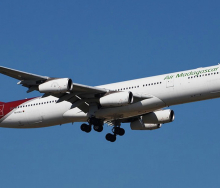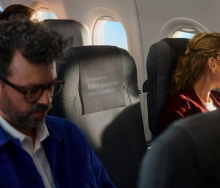Airlines Association of Southern Africa (AASA) CEO, Aaron Munetsi, has called the impact of the recent suspension of instrument flight procedures at certain airports “devastating and almost irrecoverable.”
“We cannot over-emphasise the devastating impact of such occurrences. Our airlines bear the costs – diversion, customer experience recovery, operating costs, fuel – these are the immediate costs one thinks of,” he said in his address at the AASA AGM in Paarl last week.
One AASA member alone reported 3 892 flight delays, 77 cancellations and 12 diversions between 19 July and 9 October, said Munetsi.
“The cumulative delay time for just that one airline was an eye watering 91 075 minutes or 63 25 days. This is unacceptable by any measure,” Munetsi said.
At the same AGM, Air Traffic Navigation Services (ATNS) committed to honouring its deadlines, “especially towards the festive season” as it continues to make its way through a backlog of instrument flight procedures which have caused serious flight delays and disruptions throughout the year.
Carel Gersbach, Senior Manager, Technical Planning and Quality at ATNS said the organisation was putting in place measures to work through issues which have plagued the industry since April, with East London’s King Phalo Airport being the most recent casualty.
While the action plan presented to Transport Minister Barbara Creecy and the industry put forward specific dates and milestones for priority airports until November this year, the targeted date to sort all procedures is the end of 2025, he said.
“Our commitment to the industry is that we will work towards honouring all the deadlines especially towards the festive season,” Gersbach said.
Gersbach said the key contributing factor to the backlog has been a lack of internal resources. This is being addressed through a student training programme and the appointment of contract workers.
Five students were currently being trained, with another five due to be added at the end of the year.
Contract workers, both locally and overseas, have been appointed to work through the backlogs, however this presented some challenges with parties working in different time zones and getting them certified with the CAA.
ATNS is also now required to report to Minister Creecy and provides industry updates every two weeks. It has also briefed Parliament’s Portfolio Committee on Transport on the issues.
Yesterday, October 22, ATNS issued a statement saying: “today's flight disruptions at King Phalo Airport in East London were not related to the instrument flight procedure maintenance programme. ATNS can confirm that flight procedures for the two runways in this airport are operational. This morning, the airport experienced severe weather conditions that fell below acceptable approach minima. The cloud base was under 300 feet, requiring missed approaches (go-arounds) until conditions improved.”
On th same day, FlySafair’s Chief Marketing Officer, Kirby Gordon, told Travel News that some flight procedures for ELS remained suspended.
"As it stands, the procedures for narrow-body jet pilots to operate in conditions of poor visibility are still suspended, which led to several flights being diverted to and from East London this week," said Gordon.














